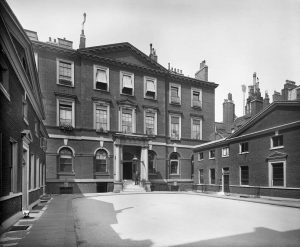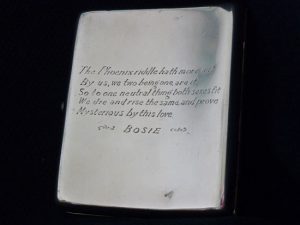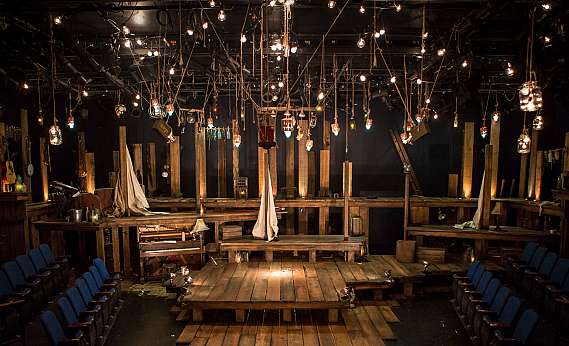I would say that my unique position was that I had taken the Drama, the most objective form known to art, and made it as personal a mode of expression as the Lyric or the Sonnet.
—Oscar Wilde
Despite being subtitled “a trivial comedy for serious people,” The Importance of Being Earnest contains many personal details about Wilde’s life and sexuality that his friends (or “an audience of intimates,” as critic Regenia Gagnier coined it) would recognize. Here are some of these hidden gems:

E4, The Albany The Order of Chaeronea, a secret society for homosexuals. The name was inspired by the battle of Chaeronea in 338 BC, when the 300 members of the Sacred Band of Thebes (composed entirely of friends and lovers) were slaughtered by the army of Philip of Macedonia.
In early drafts of the play, Algernon Moncrieff was instead named Lord Alfred—which was the name of Wilde’s lover, Lord Alfred Douglas (or “Bosie”).
The name Bracknell comes from a town in Berkshire, about thirty miles west of London. Bosie’s mother had a country home there.
In early drafts of the play, Jack’s calling card read that he lives at E4, The Albany, which was in reality the address of Wilde’s friend George Ives, founder of the secret homosexual society The Order of Chaeronea. The address was later changed to the far less outing B4, The Albany. The poet John Gambril Nicholson published a collection of poems in 1892 entitled Love in Earnest, where he included a poem that references his male lover Ernest. As a result, the name Ernest had already been used as an allusion to same-sex love in some circles before Wilde’s play.
Of key importance is the plot point of an inscribed cigarette case. In the play, Jack has one from Cecily that sets off the whole narrative when Algernon discovers that Jack is not named Ernest, as he has led others to believe. Wilde used to give inscribed cigarette cases to young men he was fond of, and would later be questioned about this while on trial.

Cigarette cases were often shared as signs of affection from one man to another. Pictured is a case from Wilde given to Lord Alfred Douglas (aka “Bosie”).
And most centrally, the whole concept of bunburying (or passing oneself off as another in order to engage in behavior that could be detrimental to one’s reputation) is of obvious relevance to homosexuals living in Victorian Britain where they could be tried and jailed for “gross indecency.” The term could have been contrived from slang terms, or it could be a wholly original invention of Wilde’s. As scholar Nicholas Frankl noted, “Ultimately, the origin of the term is less important than the activity it is intended to describe in the play, since bunburying not only means the pursuit of secret surreptitious pleasures but also suggests a form of behavior or way of life, undertaken with flagrant and self conscious disregard for social rules and conventions.”


No comments yet.